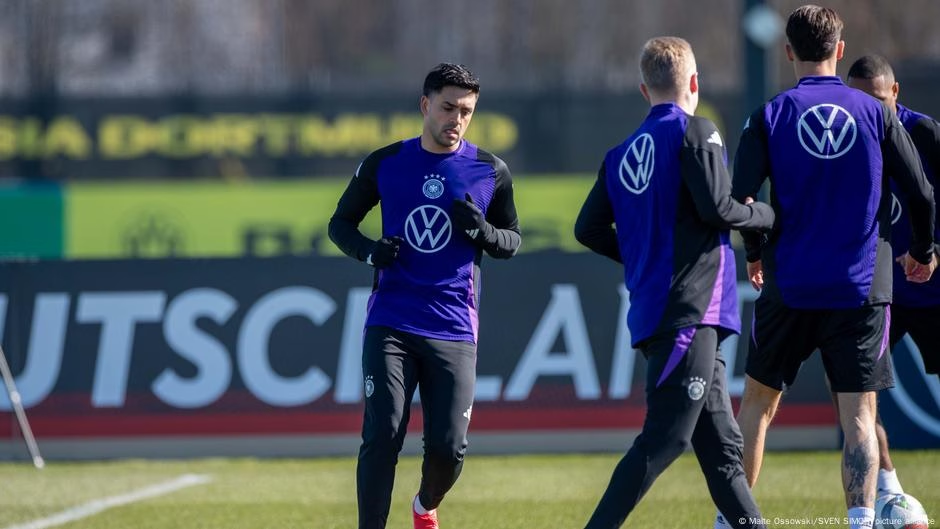Nadiem Amiri’s unexpected recall to the Germany national team is not just a testament to his talent, but also an inspiring story of overcoming adversity, resilience, and the embodiment of diversity in football. The last time Amiri received an invite from the German squad, it was under unique circumstances; he was the one everyone was trying to reach out to because former head coach Joachim Löw lacked his phone number. This time, under the management of Julian Nagelsmann, there was no such barrier, and Amiri found himself in tears upon receiving the call – a moment of pure emotional high.
Making a comeback in international football after nearly five years away is a rare accomplishment, yet Amiri has defied the odds. Nagelsmann, in the wake of several injuries affecting the squad, made the sensible decision to include Amiri, whose consistent performance with Mainz this season warranted his place. Joining his teammate Jonathan Burkardt in the squad, Amiri signifies a poignant marker in the history of Mainz players representing Germany – the last duo being Andre Schürrle and Lewis Holtby fifteen years prior.
Yet, Amiri’s journey is more than just a sporting accomplishment. Born to Afghan parents who fled their war-torn country to settle in Ludwigshafen, Germany, in the 1980s, Amiri’s life has been a remarkable tale of migration and success. His father’s trucking business and mother’s long-term employment were sacrifices made to provide a safer, more prosperous future for their children. Amiri didn’t just take to the streets of Ludwigshafen to play football; he carried with him and his family the hopes and dreams of countless others who share similar backgrounds and experiences.
Amiri’s formational years in football were spent in Kaiserslautern, a significant step facilitated by his parents. His career flourished under Julian Nagelsmann at Hoffenheim, where he won the U19 league title and was the youngest member of Germany’s 2017 U21 European Championship winning team. His performance then led to a move to Bayer Leverkusen, where he made his debut for the German national team just three months later, further endearing him to fans both in Germany and Afghanistan, who saw in him a source of inspiration and pride.
Amiri’s humility and sense of roots are evident in his involvements in refugee projects and his outreach towards the community. His visit to a refugee center in Stuttgart, inviting families to watch Germany’s World Cup qualifier, was emblematic of his support for those facing challenges similar to his parents’. His journey to Afghanistan at the age of 14 further solidified his commitment to helping those in need, merging his success with a mission to give back to society.
Despite the picturesque beginning, Amiri’s career faced turbulence, notably an incident of alleged racial abuse in 2021, which he handled with grace and resilience. Subsequent trials in Italy with Genoa and an attempted move to Leeds were less successful, leaving him at a career crossroads. The turning point came with his unconventional move to Mainz, closer to his roots, where he found the joy and confidence he needed, leading to a pivotal role in saving the club from relegation and a promising position in the Bundesliga standings. Amiri’s story is a powerful reminder that career paths, especially in sports, are seldom linear and that finding the right fit can make all the difference.
As Germany embarks on its World Cup journey, Amiri’s inclusion in the squad is not just a nod to his talent but also a celebration of his journey, the diversity he brings to the team, and the profound impact individuals can make when they find a sense of belonging and purpose.
Source: https://www.dw.com/en/nadiem-amiri-s-surprise-return-to-germany-football-team/a-71971700?maca=en-rss-en-all-1573-rdf







